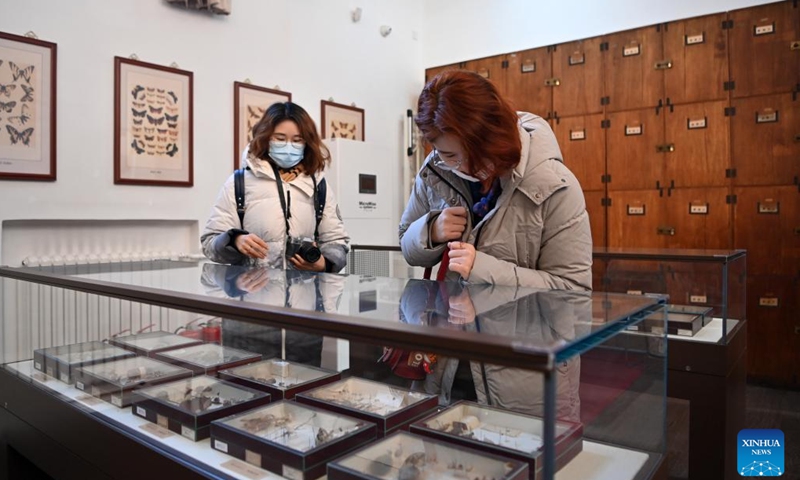
Tourists view exhibits at the Beijiang Museum in north China's Tianjin Municipality, Jan. 27, 2024.The century-old Beijiang Museum was founded by French Catholic Jesuit priest and naturalist Paul Emile Licent in 1914 when it was among the finest museums in the world and the accolades continued into the 1920s and 1930s. The museum has collected more than 200,000 specimens of animals, plants, ancient humans, rocks and minerals. (Xinhua/Li Ran)
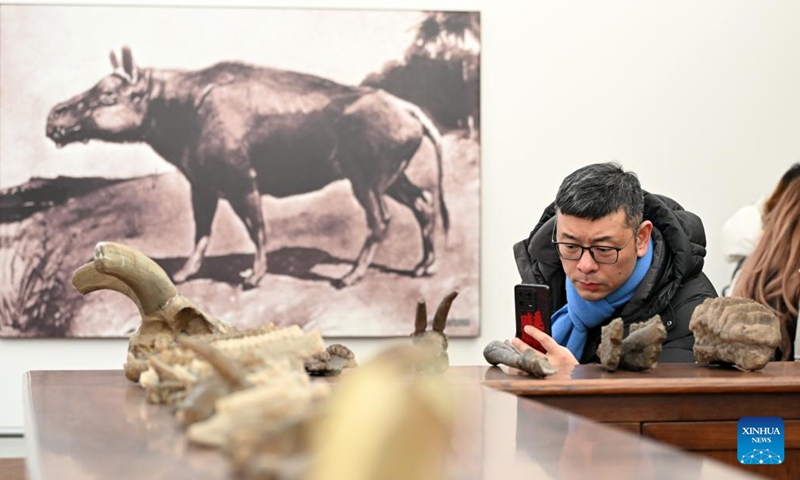
A tourist takes photos of an exhibit at the Beijiang Museum in north China's Tianjin Municipality, Jan. 27, 2024.The century-old Beijiang Museum was founded by French Catholic Jesuit priest and naturalist Paul Emile Licent in 1914 when it was among the finest museums in the world and the accolades continued into the 1920s and 1930s. The museum has collected more than 200,000 specimens of animals, plants, ancient humans, rocks and minerals. (Xinhua/Li Ran)
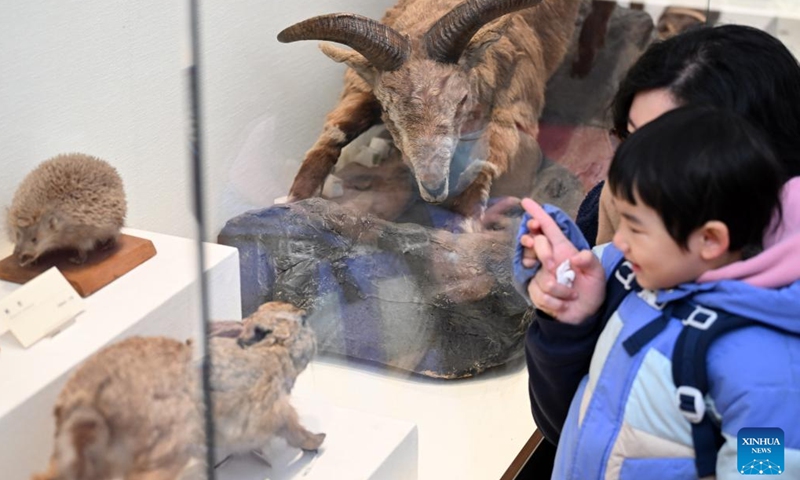
Tourists view animal specimens at the Beijiang Museum in north China's Tianjin Municipality, Jan. 27, 2024.The century-old Beijiang Museum was founded by French Catholic Jesuit priest and naturalist Paul Emile Licent in 1914 when it was among the finest museums in the world and the accolades continued into the 1920s and 1930s. The museum has collected more than 200,000 specimens of animals, plants, ancient humans, rocks and minerals. (Xinhua/Li Ran)
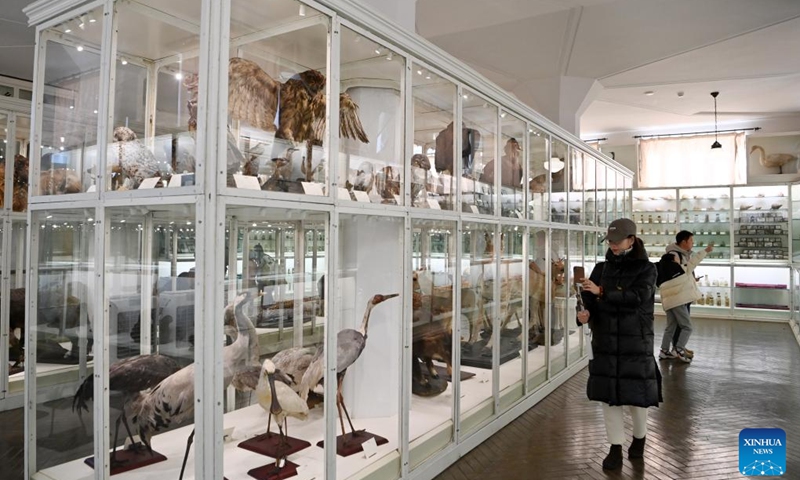
Tourists view exhibits at the Beijiang Museum in north China's Tianjin Municipality, Jan. 27, 2024.The century-old Beijiang Museum was founded by French Catholic Jesuit priest and naturalist Paul Emile Licent in 1914 when it was among the finest museums in the world and the accolades continued into the 1920s and 1930s. The museum has collected more than 200,000 specimens of animals, plants, ancient humans, rocks and minerals. (Xinhua/Li Ran)
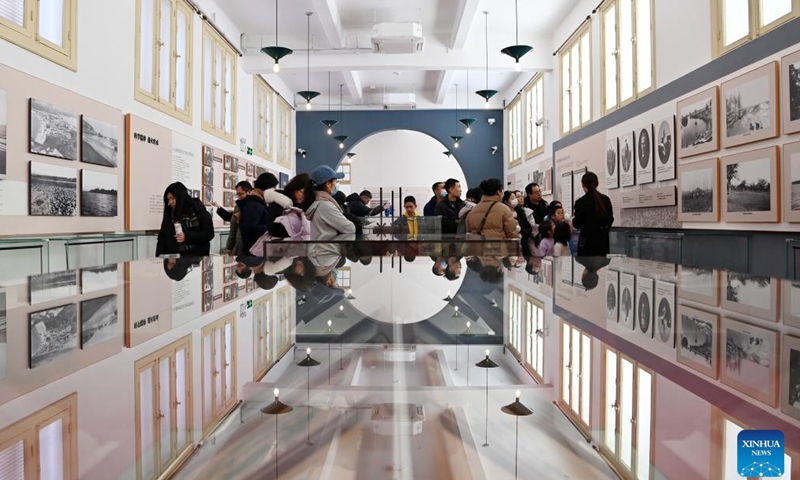
Tourists view exhibits at the Beijiang Museum in north China's Tianjin Municipality, Jan. 27, 2024.The century-old Beijiang Museum was founded by French Catholic Jesuit priest and naturalist Paul Emile Licent in 1914 when it was among the finest museums in the world and the accolades continued into the 1920s and 1930s. The museum has collected more than 200,000 specimens of animals, plants, ancient humans, rocks and minerals. (Xinhua/Li Ran)
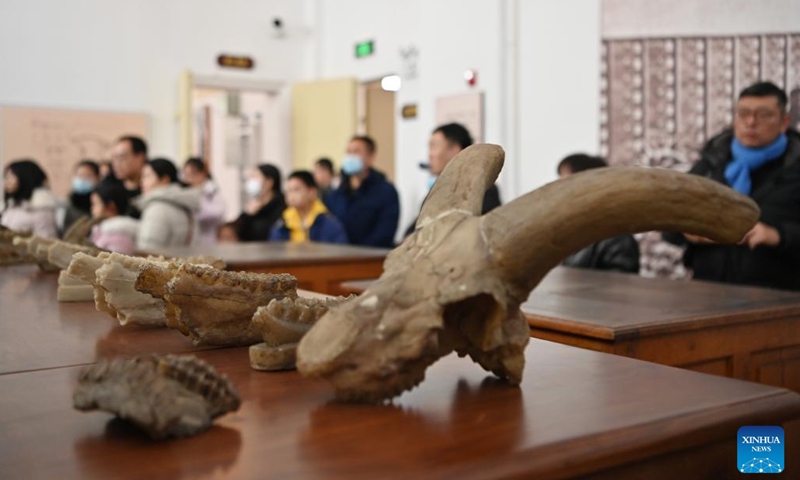
This photo taken on Jan. 27, 2024 shows exhibits at the Beijiang Museum in north China's Tianjin Municipality.The century-old Beijiang Museum was founded by French Catholic Jesuit priest and naturalist Paul Emile Licent in 1914 when it was among the finest museums in the world and the accolades continued into the 1920s and 1930s. The museum has collected more than 200,000 specimens of animals, plants, ancient humans, rocks and minerals. (Xinhua/Li Ran)
